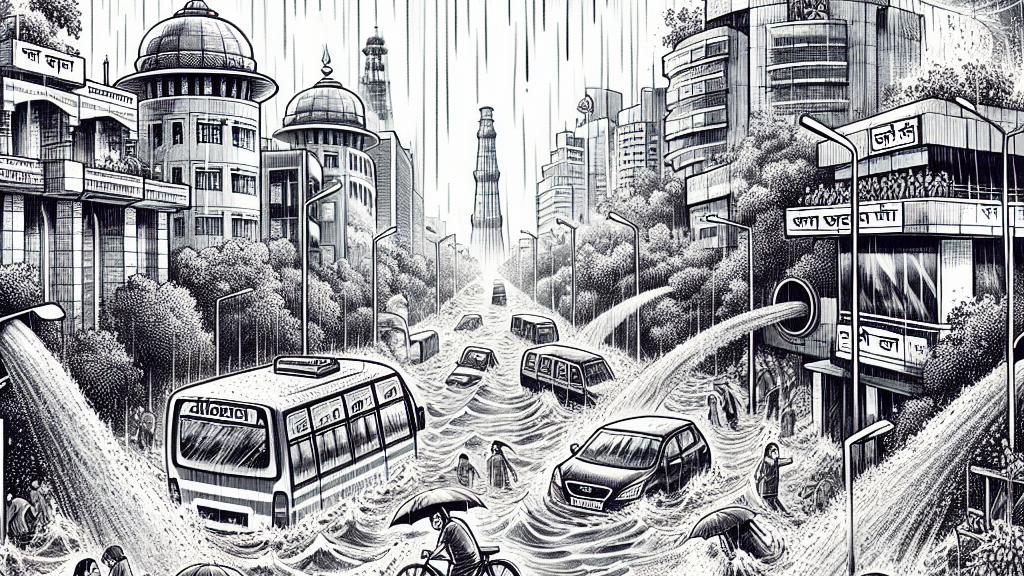Delhi Drenched: Heavy Rains Claim Lives and Close Schools
Overview
- Severe rains in Delhi have caused fatalities and prompted immediate school closures.
- With over 147mm of rain recorded in a single day, the city faces significant waterlogging.
- Authorities predict continued rain, emphasizing the need for public caution and preparedness.

Unprecedented Rainfall Grips Delhi
On July 31, 2024, an unexpected and devastating rainfall struck Delhi, India, resulting in at least two tragic fatalities. The India Meteorological Department (IMD) noted that a staggering 147mm of rain fell predominantly in the eastern regions of the city, surprising residents who were unprepared for such intense weather. This extreme weather led to hazardous conditions, with overflowing drains claiming lives as individuals fell into waterlogged areas. The Delhi Water Minister highlighted the urgency of raising public awareness about safety measures during such unpredictable weather episodes.
Widespread Disruption and Infrastructure Strain
The immediate impact of the heavy rains extended beyond casualties; schools across Delhi were closed as officials prioritized the safety of students, with predictions of further rain in the upcoming days. The flooding resulted in chaotic traffic scenarios as roads became impassable, causing major delays and stranding commuters. Emergency services worked diligently to respond to distress calls, rescuing individuals trapped in vehicles and homes. Visual reports captured the dire situation, showcasing submerged neighborhoods and overwhelmed infrastructure. The incident serves as a critical reminder of the urgent need for urban planning that can effectively manage severe weather challenges.
Climate Change: A Catalyst for Extreme Weather Events
The catastrophic flooding in Delhi is indicative of a larger pattern driven by climate change, which is significantly increasing the frequency and intensity of extreme weather events globally. As the planet warms, the atmosphere's capacity to hold moisture rises, resulting in heavier rainfalls that exacerbate the risk of flooding, particularly in densely populated urban areas. Historical data reveals alarming trends, with the IMD reporting a marked increase in extreme rainfall incidents over recent decades. To combat these challenges, experts recommend vital measures, including enhancing drainage systems, investing in green infrastructure to absorb excess water, and fostering community engagement to prepare residents for potential flooding events.

Loading...